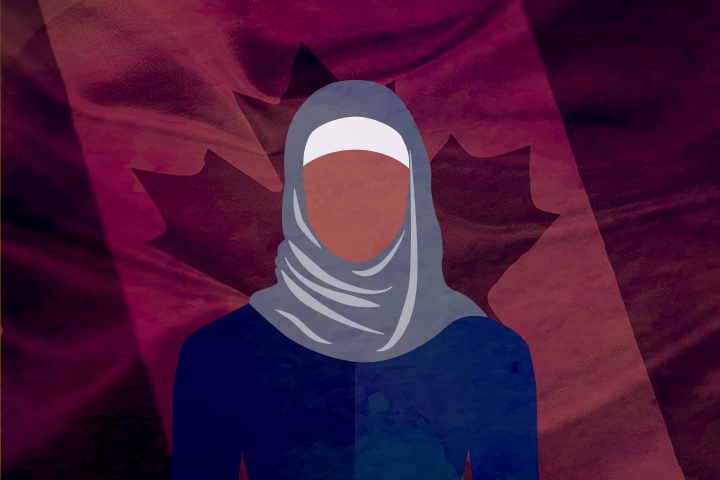On April 22, a woman was allegedly assaulted outside the parking lot of Walmart in Milton, Ont. The alleged assaulter hit her while the victim was with her two-month and four-year-old daughters.

Sadly, this is no longer an “atypical, or one-off” incident. The National Council of Canadian Muslims has reported 72 incidents in 2017 and 41 in 2018.
This incident was reported in the local media. But many such incidents go unreported.
READ MORE: Nearly 50% of Canadians think racist thoughts are normal, Ipsos poll finds
A recent IPSOS survey also points to the fault lines in society.
Almost half of Canadians (47 per cent) believe racism is a major issue confronting society today. One in four Canadians (23 per cent) have been a victim of this growing tide.
And though Jews and Blacks have also been targeted, some 59 per cent of the respondents believed, Muslims were the most likely targets. The same poll finds that more than a quarter of Canadians think, over the past five years, it has become “more acceptable” to be prejudiced against Muslims and Arabs.
The survey continues with statistics showing nearly four in 10 Canadians feel immigrants are a threat to white Canadians and are stealing their jobs. Three in 10 Canadians also believe that Muslims in Canada follow Sharia law instead of the local law and that two in 10 Canadians think people of the Jewish faith control media and finance in the country.
Statistics Canada also reported a 47 per cent rise in police-reported hate crimes between 2016 and 2017. During the period, Muslim-related incidents went up by 151 per cent, while incidents against Jews also surged by 63 per cent.
The biggest jumps were seen in Ontario and Quebec, where they went up by 207 per cent and 185 per cent respectively.
WATCH BELOW: Some Canadians still believe harmful stereotypes, Ipsos poll finds

The Peel Police Service’s annual Hate Motivated Crimes report documents the trend. In 2017 48.1 per cent of hate crimes targeted religious groups and Muslims were the most aggrieved. The number of incidents against them went up from five in 2016 to 57 in 2017.
The Trump era has also given a boost to white supremacy trends. Local, far-right extremist groups have penetrated into Canadian institutions. A recent Canadian Armed Forces investigation revealed that some of its members have been linked to six hate groups since 2013.
READ MORE: Canadian Armed Forces members linked to six hate groups, internal report finds
Visible minorities also feel the number of hate-related crimes is underestimated, not only because of unreported incidents but also because law enforcement agencies are not treating every such incident as a hate crime or as a direct consequence of Islamophobia.
The government is aware of the emerging fault lines. It has taken steps to provide security to visible minorities. Public Safety Canada has spent more than $7 million since 2012, upgrading security at religious institutions. Yet the spate of violent, hate crime continues.
READ MORE: Canada’s places of worship are fortifying, and the government is helping pay for it
Recently, the Muslim Association of Canada and the Muslim Council of Peel hosted the Peel Police and RCMP to discuss how it was dealing with rising extremism and Islamophobia. To overcome the sense of insecurity among the visible minorities, and to understand the “other viewpoint,” more of such interactions remain absolutely necessary.
“Canadian multiculturalism is not focused on equity or affirmative action,” writes Brittany Garuk in an online article. Instead, Garuk adopts the view that it is focused on “non-controversial” aspects of culture, such as food, clothing, dance and music, that are used to promote tourism. “We need to stop asking if racism is a problem here, and talk about ‘why’ it is a problem here.”
Ottawa needs to commit to the enormity of the situation. Defining Islamophobia in absolute terms could be the first step in the process.
Let us also begin by delineating an all-encompassing definition of Islamophobia, and prioritizing this dilemma in government and law enforcement.
This is not simply an issue pertaining to the Muslim community, but rather a Canadian issue of social justice and equality that must be addressed before this pandemic reaches other communities.
Memona Hossain is completing her PhD in ecopsychology and serves as a board member of the Muslim Association of Canada.



Comments